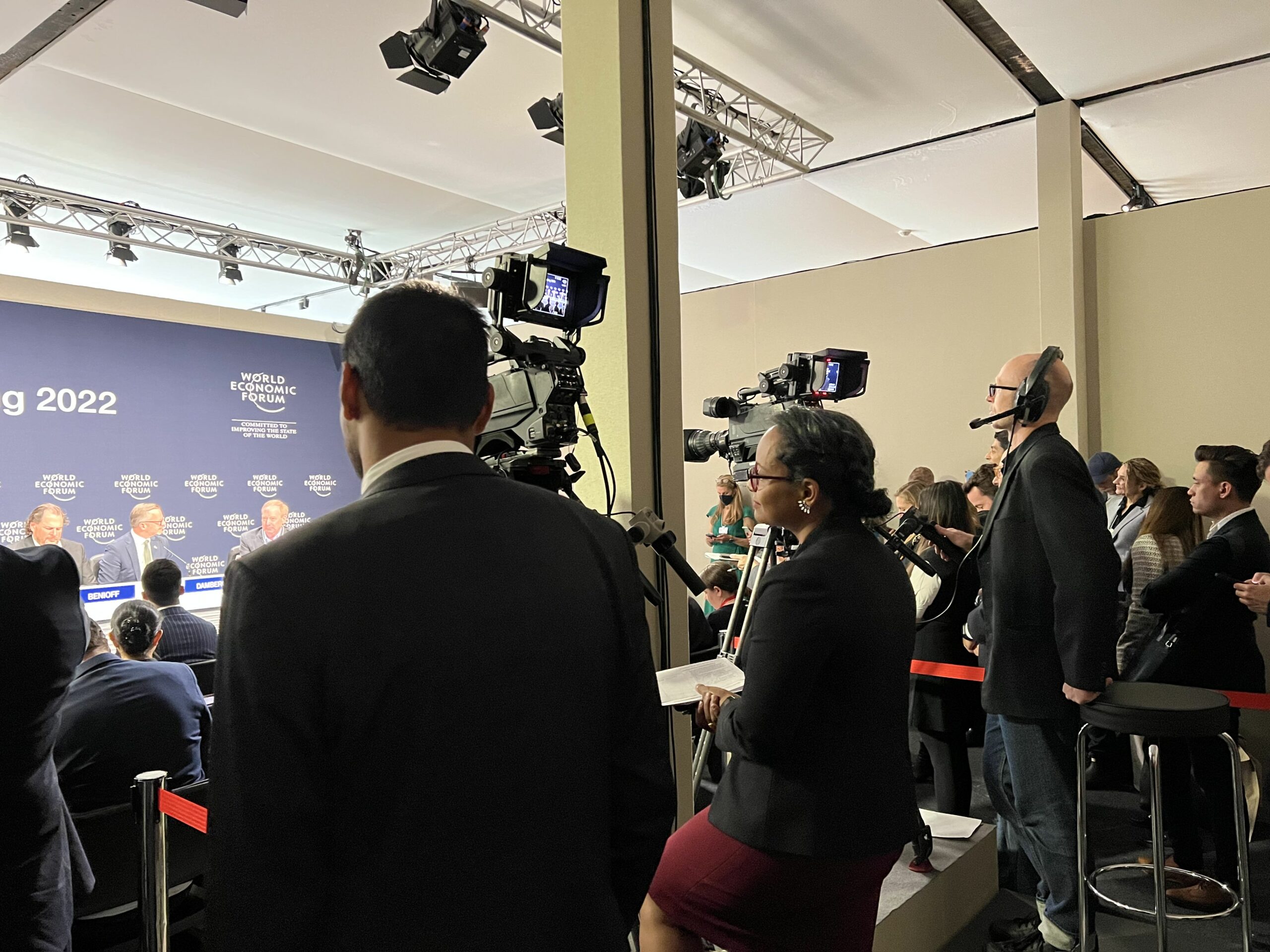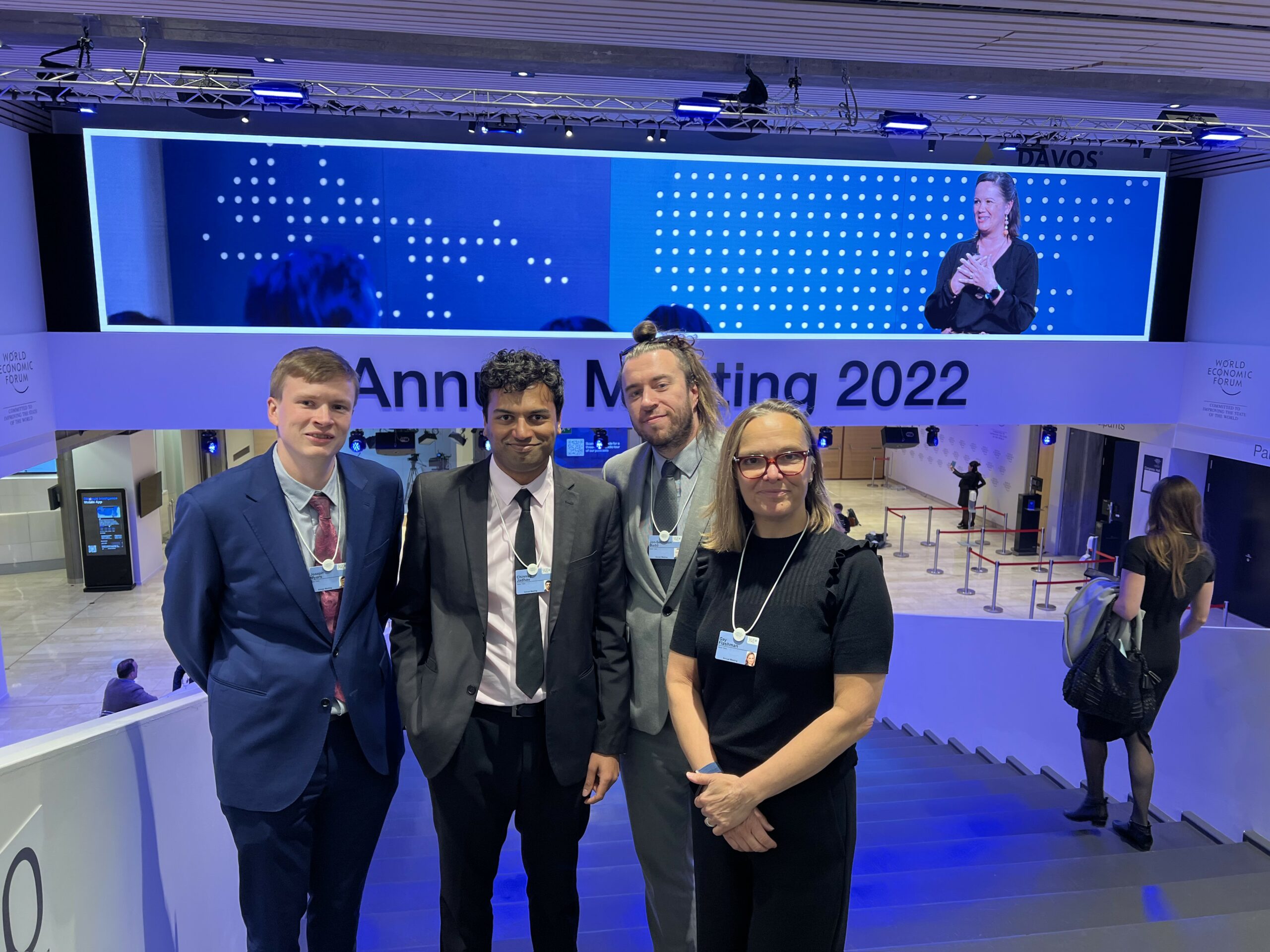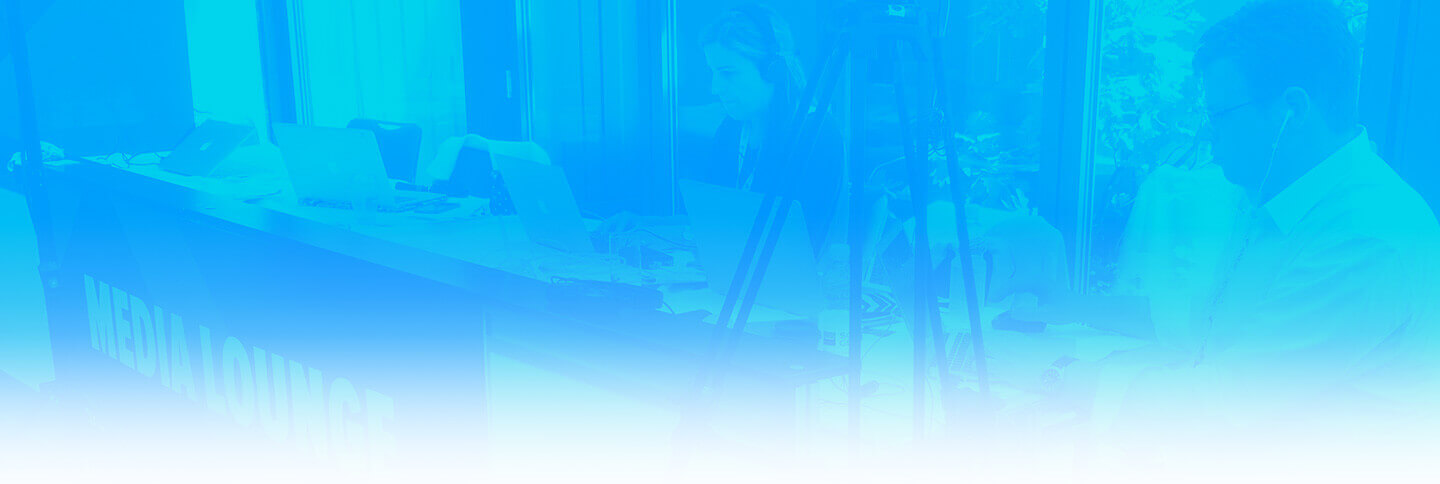Getting the most out of live events like Davos
Events are a goldmine for content creation, enabling companies to tell their stories and share key messages in real-time, while also providing a bank of material to keep the conversation going long after the last lanyard has been taken off.
But for communications departments, successful events don’t happen by accident. They need planning, execution and review to learn lessons for next time.
As business leaders prepare to descend on the Swiss mountain town of Davos this January for the World Economic Forum’s Annual Meeting, an army of comms professionals are already planning and preparing for how best to amplify the event and its messages to their audiences.
Our Head of Operations, Joe Myers, has been going up the mountain since 2017. Here are his top tips for comms teams getting ready for Davos 2023 – or any other live event.

PREPARATION
How do you prepare for a live event?
Ask anyone who’s worked in live broadcast (and there are a few at Formative who have) and they’ll tell you preparation is key to dealing with the rigours of live output. You need to know what you’re doing, who’s doing it and what your Plan B is.
Ahead of time, you need to agree outputs from the event and set up communications channels. You’ll also need to agree an approvals process with the client for live content, whether that’s fast turnaround session summaries, video soundbites or social media activity.
How important is it to have a strategy?
It’s vital that you understand what you plan to deliver, but also how you’ll deliver it – and potentially be realistic about what might be possible during the event itself. If the priority is live coverage, you need to make sure resources are aligned to deliver this. However, if the focus is on collecting content and story mining for evergreen content, your mix of staff on the ground and how you interact with clients will be different. And you don’t have to do all the work during the event itself – you can also get ahead by preparing content ahead of time.
From quote card templates to blogs based on embargoed copies of reports and press releases, you can help yourself and your client by having some content ready to grab off the shelf. This leaves everyone free to focus on the live elements. You’ll also want to agree on what success looks like.
What should our metrics for success be?
It depends. It might be as simple as ‘We’ll have covered and amplified these three key sessions’ or more nuanced – page views, impressions, video views. We always work with clients to understand what’s important to them and develop a robust set of KPIs that are tailored to their needs.
ON THE GROUND
What are the key skills needed to ensure live event coverage is a success?
Both soft and hard skills are needed to make a success of live coverage. You, of course, need the right skills mix on the ground. There’s not much point in sending a writer as a videographer, so in the planning stage you need to carefully align resources to output.
But part of any successful on-the-ground collaboration with a client lies in the approach and soft skills all our team members have. These are rooted in our core values of fast, human, straightforward and meticulous.

What do these soft skills add?
Being on the ground at an event requires being responsive, calm, adaptable and agile, so we can change plans quickly and add value in the moment. They’re high-pressure events, so these soft skills are vital.
Bringing these hard and soft skills together allows us to just get on with the job, trusting our editorial expertise and leaning on our adaptability, agility and reliability to deliver outstanding outputs, without needing our hands held by the client. They’re likely to be very busy, so we just get on with the work we’ve been entrusted to do, rather than deferring to them constantly.
What are the main challenges when covering live events and how do you address them?
Some of the main challenges are inevitably practical. We might be travelling internationally, with filming or other vital kit. For example, you might need a carnet to clear customs with camera equipment, or at the very least be prepared to pay some excess baggage charges. Flights and travel all need to be arranged to align with accommodation availability and when we’re needed on the ground.
You then might need to scout out the venue to find the best places to film soundbites or set yourself up to write session summaries or social media copy. Again, this is about resilience and flexibility – you might find yourself tucked in the corner of a media centre or shuffled around different conference rooms.
Luckily, for our social media and writing teams, all we need is a laptop, charger (don’t forget adaptors!) and a plug and we’ll get it done.
How do you keep energy levels up?
Your team might be jet-lagged, up long before dawn and to bed long after the sun’s gone down. Pace yourselves, drink plenty of water, have a handy supply of healthy(ish) snacks and make sure you’re mentally prepared to push yourself through it. And, if you’re anything like me, make sure you locate the best coffee machine in the building and are on good terms with the barista.
For most events, we’ll also have a team ready and waiting to help remotely. Get plan B (and C, D and E) ready and have support ready for those on the ground should they need it – particularly to help with those unexpected or unusual demands that often come our way at events.
POST-EVENT
What happens next?
There’s a whole host of activity after an event – it rarely finishes as you leave the conference centre. There might be more content to make – wrap-up blogs, highlights videos, ideation based on sessions that weren’t covered at the time. That’s priority one.
How important is it to reflect?
Absolutely vital.
We’ll look carefully at analytics. How has the content performed? What worked and what didn’t? How did it compare to pre-agreed KPIs?
We’ll then typically have a wash-up meeting with the client, which is an opportunity to look at what worked well and what we might tweak in future. We see ourselves as trusted advisors to our clients and these sort of honest, reflective meetings are the foundation of many of our relationships.
Our teams thrive on the chance to work together on the ground at events – and often it’s the combination of collaboration and adrenaline that ensure success.
But getting the basics right is essential: prep, prep and more prep; clarity around communication and outputs; and adopting a calm, adaptable mindset.

Heading to Davos, another major event or even hosting your own? Find out more about how Formative Content can support you on the ground and remotely by getting in touch with alex.gray@formativecontent.com
READ MORE
If you want world-class content, you need world-class project management
Why being seen to be green is not enough: 5 communication lessons from COP27

Related Articles

AI won’t destroy SEO – but it will massively change the game
“The reports of my death are greatly exaggerated,” Mark Twain is said to have told a newspaper reporter.

Where creativity and technology meet: a designer’s view on artificial intelligence
My favourite things usually exist where creativity and cutting edge technology meet.

What does the launch of Twitter-alternative Threads mean for B2B marketers?
Threads, a Meta-owned alternative to Twitter, is set to launch on Thursday.

Protecting your brand in the age of generative AI
Imagine a deep fake video supposedly of your CEO making a market-moving statement going viral on the web.



